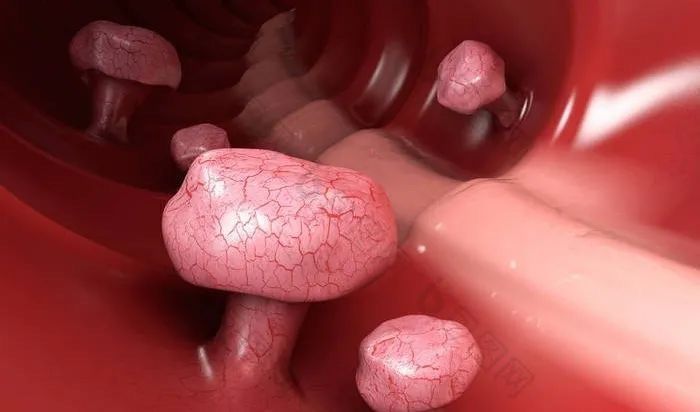
Colorectal cancer is often referred to as “the cancer of the rich”. Due to the improvement of living standards and the westernization of dietary patterns, the number of colorectal cancer patients in my country is increasing day by day. In Shanghai, colorectal cancer has ranked the second most common malignant tumor.
With the changes in health awareness and medical examination technology, more and more people are worried that “intestinal polyps” are found in the medical examination report, which is linked to bowel cancer.
Generally speaking, during colonoscopy, any bulge on the intestinal tract, no matter how big, can be called as long as it protrudes from the surface of the intestinal mucosa. for polyps.
Can polyps become cancer? In fact, there are many kinds of polyps, not only polyps that can become cancerous, but also polyps caused by inflammation, or polyps caused by benign hyperplasia. The key is to see what the nature of the polyp is. If it is an inflammatory polyp or a hyperplastic polyp, it will not become cancerous, so we don’t have to worry about it.
If the final pathological result of the polyp is adenomatous polyp, it may become cancer. Of course, different polyps have different probability of canceration in different populations. For example, the polyp is relatively large, larger than 1 cm and is a wide pedunculated polyp. When we do colonoscopy, we should pay attention to whether the probability of this person becoming cancerous will be relatively high, especially when the pathology shows villous adenoma, then its Cancer probability may exceed 20%.
After the polyp is removed, the follow-up treatment needs to look at the pathology report and the size of the polyp. If the polyp is relatively small, after colonoscopy, the pathology report is benign and the treatment is over. Of course, people with a family history have a special situation, because their polyps have a relatively high probability of becoming cancerous, and at the same time, when they develop intestinal adenomatous polyps, they grow faster. For people with family history, if colonoscopy finds intestinal adenomatous polyps, colonoscopy should be done regularly, usually once every six months or a year.
At the same time, always pay attention to the pathological report after colonoscopy. If the pathological result is a relatively dangerous and highly malignant adenomatous polyp, further treatment should be required, or whether it should be carried out at a later stage. operation treatment.
Source: Fudan University Cancer Hospital